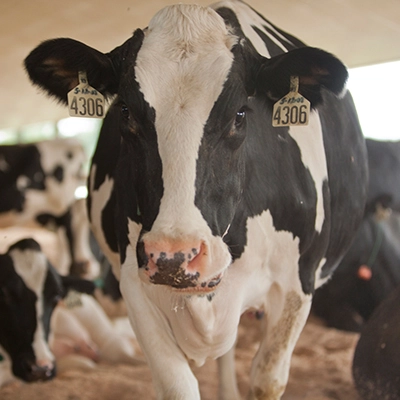How farmers keep antibiotics out of your milk
I hope you’re having a better week than we are.
We had a major screw up on our farm Monday morning. Not a great start to the week for us, but it allows me to share what we’re doing to make sure your milk is safe.
Long story short, we have two cows that we were ready to dry off. That means they go on a “vacation” from milking before they have their calf. It also means that we give them an antibiotic as a precaution in case they get sick during this transition, and we paint a bright red line on them so we know not to milk them. But unfortunately, one of those cows got milked.
That’s an issue because her milk went into the tank that holds the milk from the rest of our cows. As soon as we realized what happened, we tested the milk in the bulk tank Monday morning, and as we expected, it came back positive for antibiotics.
So here’s the deal: We had to dump that milk. Every drop of the 1,000 gallons had to go down the drain.
To put it simply, if milk has antibiotics in it, we can’t sell it. And if somehow we hadn’t discovered it, then the milk truck driver who comes to pick up our milk would have discovered it when he tested our milk. That’s because every tank of milk is tested each time it’s picked up on all farms. And if our milk had been mixed with other farms’ milk on the truck, we would have been responsible for paying for the entire semi load of milk because it would have to be thrown away.
It doesn’t matter if milk is from an organic farm, a regular farm, small farm, big farm – every single tank of milk is tested. And it’s a hard day for a farmer to see all that work – and not just our work, but the work of our cows – literally go down the drain. I want everyone to know the milk you buy at the grocery store, regardless of what the label says, is safe. We all take these same safety precautions.
While we can’t sell the milk, we’ll make sure it doesn’t go to waste. The drain it went down flows into a holding tank. We’ll soon spread it back to the earth and return the nutrients to the soil.
And while there is some insurance that will help, it won’t cover 100 percent.
This is all to say we’re doing everything we can to make sure that milk stays safe.
Image courtesy of Dairy Carrie.















